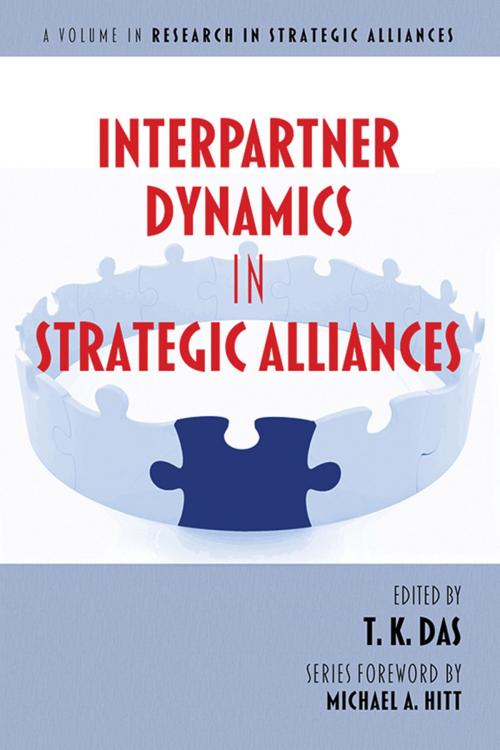Interpartner Dynamics in Strategic Alliances
Business & Finance, Human Resources & Personnel Management, Organizational Behavior, Finance & Investing, Investments & Securities, Management & Leadership, Management| Author: | ISBN: | 9781623961374 | |
| Publisher: | Information Age Publishing | Publication: | April 1, 2013 |
| Imprint: | Information Age Publishing | Language: | English |
| Author: | |
| ISBN: | 9781623961374 |
| Publisher: | Information Age Publishing |
| Publication: | April 1, 2013 |
| Imprint: | Information Age Publishing |
| Language: | English |
Interpartner Dynamics in Strategic Alliances is a volume in the book series Research in Strategic Alliances that will focus on providing a robust and comprehensive forum for new scholarship in the field of strategic alliances. In particular, the books in the series will cover new views of interdisciplinary theoretical frameworks and models, significant practical problems of alliance organization and management, and emerging areas of inquiry. The series will also include comprehensive empirical studies of selected segments of business, economic, industrial, government, and nonprofit activities with wide prevalence of strategic alliances. Through the ongoing release of focused topical titles, this book series will seek to disseminate theoretical insights and practical management information that will enable interested professionals to gain a rigorous and comprehensive understanding of the field of strategic alliances. Interpartner Dynamics in Strategic Alliances contains contributions by leading scholars in the field of strategic alliance research. The 13 chapters in this volume cover a number of significant topics that speak to the critical issues in the interactions between partner firms in strategic alliances. The chapter topics cover both the broader issues, such as relational mechanisms in alliances, role of interpersonal networks, parental control of joint ventures, conflict management, interpartner diversity, and multilevel embeddedness in multilateral alliances, and the more focused problems of alliance competence, roles of third parties, accounting for partner trust, relationship quality in construction alliances, and how natural resources may impact alliance formation. The chapters include empirical as well as conceptual treatments of the selected topics, and collectively present a wideranging review of the noteworthy research perspectives on interpartner dynamics in strategic alliances.
Interpartner Dynamics in Strategic Alliances is a volume in the book series Research in Strategic Alliances that will focus on providing a robust and comprehensive forum for new scholarship in the field of strategic alliances. In particular, the books in the series will cover new views of interdisciplinary theoretical frameworks and models, significant practical problems of alliance organization and management, and emerging areas of inquiry. The series will also include comprehensive empirical studies of selected segments of business, economic, industrial, government, and nonprofit activities with wide prevalence of strategic alliances. Through the ongoing release of focused topical titles, this book series will seek to disseminate theoretical insights and practical management information that will enable interested professionals to gain a rigorous and comprehensive understanding of the field of strategic alliances. Interpartner Dynamics in Strategic Alliances contains contributions by leading scholars in the field of strategic alliance research. The 13 chapters in this volume cover a number of significant topics that speak to the critical issues in the interactions between partner firms in strategic alliances. The chapter topics cover both the broader issues, such as relational mechanisms in alliances, role of interpersonal networks, parental control of joint ventures, conflict management, interpartner diversity, and multilevel embeddedness in multilateral alliances, and the more focused problems of alliance competence, roles of third parties, accounting for partner trust, relationship quality in construction alliances, and how natural resources may impact alliance formation. The chapters include empirical as well as conceptual treatments of the selected topics, and collectively present a wideranging review of the noteworthy research perspectives on interpartner dynamics in strategic alliances.















